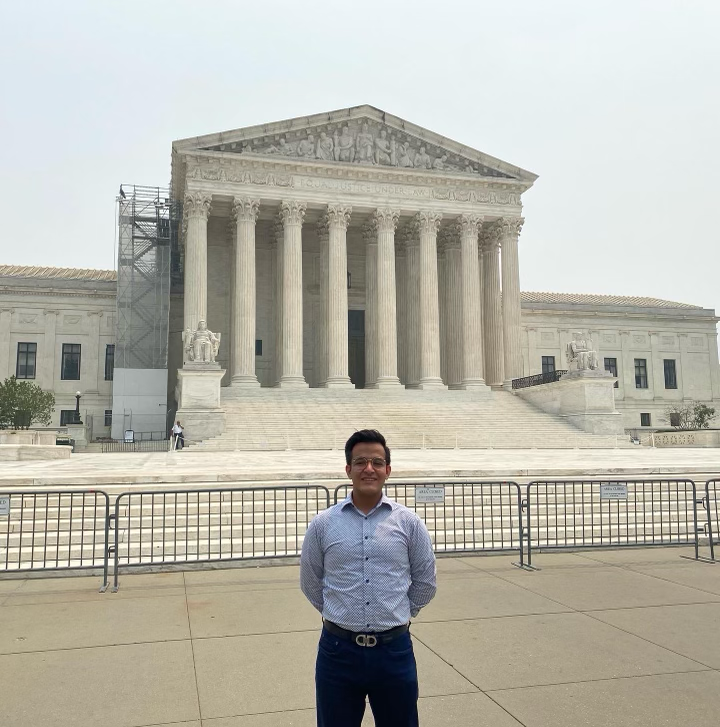Throughout my immigration policy research internship at the Cisneros Hispanic Leadership Institute, I was able to learn about the collaborative and detailed process of transforming academic literature into meaningful policy. This experience gave me a unique perspective on the intricacies associated with research and policy.
In my first weeks, I learned about the negative consequences that immigrant and Latine communities face from policies targeted at controlling immigration by familiarizing myself with academic research papers produced by immigration scholars of color. The discussions in these papers revealed the indirect impacts that families, border citizens, and broader communities endure despite not being targets of these policies. The policy recommendations that followed from each paper were a clear display that common sense reform to mitigate negative impacts is possible and that future policies must carefully assess all who could be impacted by legislation.
Further into my internship, I familiarized myself with the agenda-setting process within the context of the Immigrant Well-being Scholar Collaborative research initiative and at a broader scale. Attending my first congressional hearing, the Senate Health, Education, Labor and Pensions Committee’s hearing on “Why Are So Many American Youth in a Mental Health Crisis? Exploring Causes and Solutions,” I gained insights on the behaviors that legislators exhibit when discussing current issues. Mental health conversations, for example, pivoted around hot topics like schooling, youth mental health, social media, and big tech; yet the exacerbated impact from mental health that immigrants and other marginalized communities encounter were lacking. This pattern of centering hot-button issues continued among all the congressional hearings that I attended. Events outside of these hearings, however, proved more fruitful, since they delved into detailed policy discussions where I left with more insight on topics than I came in with.
Within my work at the Cisneros Institute, I deepened my understanding of the policy process by creating one-pagers, where I had to evaluate what provides the most important and impactful information for an audience of legislators using a small amount of space recognizing that Congressional staffers are often pressed for time and wrestle with many issues. Further, researching issue-related tweets, Congresspersons, and organizations helped me understand how potential partners and stakeholders can be identified and targeted throughout this process.
Finally, creating a research paper allowed me to dive deep into policy interventions and their implementation within a complicated and fragmented immigration system. I learned about the magnitude of meaningful change that can be realized within local and state settings, and the discussions that policy experts have from these interventions. I feel honored to have contributed to broader initiatives that strive to improve the material conditions of immigrant communities; I hope to be a part of work like this as a professional and increase my impact.
Agustin del Campo is a senior at Rice University. He was a Research Assistant at the Cisneros Hispanic Leadership Institute through the 2023 Baker Institute Summer in D.C. Program.


